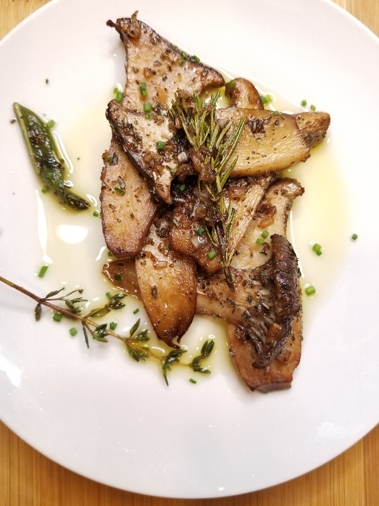Looking to start a plant-based diet? Here are four to consider!
Feb 7, 2019

There are so many types of plant-based diets and a lot of buzz about each! Understanding each one and knowing what’s best for you can be challenging. First, let’s start by clarifying what we mean when we say “diet.” For the purpose of this article, we are referring to everything that comprises your nutritional intake. How is your body fueling itself and from what sources is that fuel derived? Everything that you eat forms your diet. The word can often mean a plan or tactic for weight loss, but we’re not going to cover that here.
The idea is that your diet should be a lifestyle – not a temporary restriction that causes your weight to yo-yo up and down or something that you do out of desperation. When consumed in moderation and within correct portion sizes, most foods can be part of a healthy diet. Here is a breakdown of a few different types of healthy, plant-based diets:
Lacto-ovo Vegetarian– There are many different types of vegetarian diets, but the most common is the lacto-ovo form of vegetarianism. On this diet, it’s okay to consume some animal products like dairy, eggs and honey. For lacto-ovo vegetarians, protein comes from a variety of sources including, but not limited to, eggs, cheese, other dairy products, beans and legumes, tofu and even certain grains like quinoa. Vegetarians also need to make sure that they are managing their fat intake. While it’s tempting to cover everything in cheese or cook in butter, these are still elements that should be included in moderation. French fries are vegetarian, but, when eaten in excess, can still lead to an unhealthy lifestyle.
Vegan– Though it is really a subsect of vegetarianism, the vegan diet has garnered a lot of attention lately, so we thought we’d break it out into its own category. A vegan diet will only consist of plant-based foods. Nothing that is produced from another animal is consumed, including the elimination of eggs, dairy and honey. Vegans must be particularly cognizant of including some nutritional cornerstones such as dietary fats, calcium and some vitamins like D and B12.
Raw– The raw diet focuses on foods that are unprocessed and uncooked. Foods included in the raw diet are vegetables, fruits, seeds and nuts, legumes and sprouted grains. Sometimes raw dieters choose to include minimally processed foods such as cheese, yogurt and some sprouted seeds. Those on the raw diet will need to make sure they are monitoring the safety of their foods, as cooking often kills harmful bacteria and makes foods easier for our bodies to process. Any food that should be cooked for safety reasons should not be consumed on the raw diet, even if it technically fits the requirements.
Mediterranean– Based on the nutritional habits of those located off the Mediterranean Sea, like residents of Spain, Greece and Italy, the Mediterranean diet is taking the health world by storm. This diet is the epitome of “everything in moderation,” and focuses on good fats mixed with a strong plant base. Vegetables, fruits, whole grains, legumes and healthy fats like olive oil are staples. While this diet can incorporate meat, it would be very easy to make select changes and embrace this as a completely lacto-ovo vegetarian-based diet.
Choosing the right diet for you can be an overwhelming task. You’ll want something that meets your lifestyle, fills your nutritional needs and provides you with the health results you’re seeking. Every diet has pros and cons, and some diets, depending on your medical history, can actually be harmful to your health. It’s a good idea to consult with your doctor before completely altering your intake. A doctor can not only help you select the diet that’s right for you, but can also give you insights into what nutrients you’ll want to supplement if needed.


